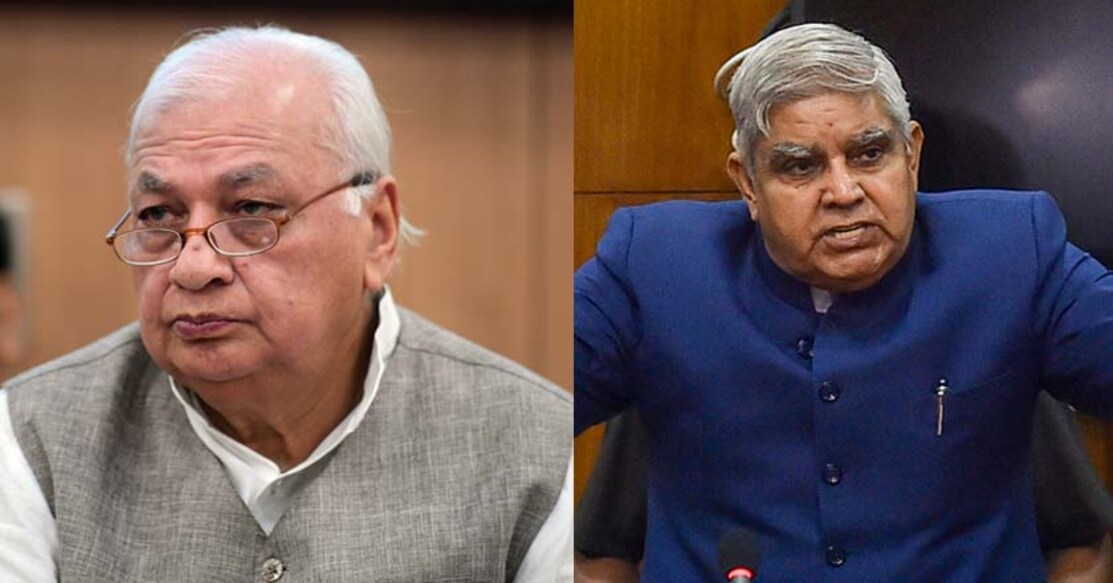Kerala, Bengal governors lock horns with state govts like never before

Mail This Article
New Delhi: In a constitutional democracy, governors may differ with the state government on policy issues and this has happened in India. However, the current situation in Kerala and Bengal where the respective governors are at loggerheads with the state governments is unprecedented. In both the states, the governors have openly come out against the state governments like never before.
West Bengal Governor, Jagdeep Dhankhar has been clashing with the Mamata Baneerjee-led TMC government in the state, from the beginning of his tenure in mid-2019. Now Kerala Governor Arif Mohammad Khan has followed his path by locking horns with the Pinarayi Vijayan government on the Citizenship Amendment Act (CAA).
There have been instances of governors and the state government taking diverse views right from the time of Independence. This was because the governors are picked up by the central government to safeguard their interests in the state. Only leaders of their parties have been appointed as governors during the tenure of the governments of the Congress, Janata Dal and National Democratic Alliance (NDA) at the centre.
Sarkaria Commission and Punchhi Commission, which dealt with matters pertaining to the Centre-State relations, have recommended against political appointments to the governor's post. They wanted independent observers who had excelled in various field appointment as governor's to ensure the credibility of the constitutional post.
The five-judge bench of the Supreme Court in a majority verdict after hearing appeals filed by Delhi Chief minister Arvind Kejriwal’s government against the stand of Lieutenant Governor Anil Bajaj had ruled that the Lieutenant Governor is bound to listen to the democratically elected government and cannot act independently.
In the SR Bommai case, B P Singhal case, Arunachal Pradesh case and Uttarakhand case, the Supreme Court had ordered that the governor could not unilaterally take a decision on who has the majority to form the government. The court ordered that majority for forming the government can be determined only by the vote of confidence in the assembly.
Recently, the Madras High Court in a case over a tussle between Puducherry Lieutenant Governor Kiran Bedi and Chief Minister V Narayanaswami had ruled that the governor has no powers to interfere in the functioning of the state government. Narayanaswami approached the court after the governor began to interfere in the day-to-day affairs of the government.

